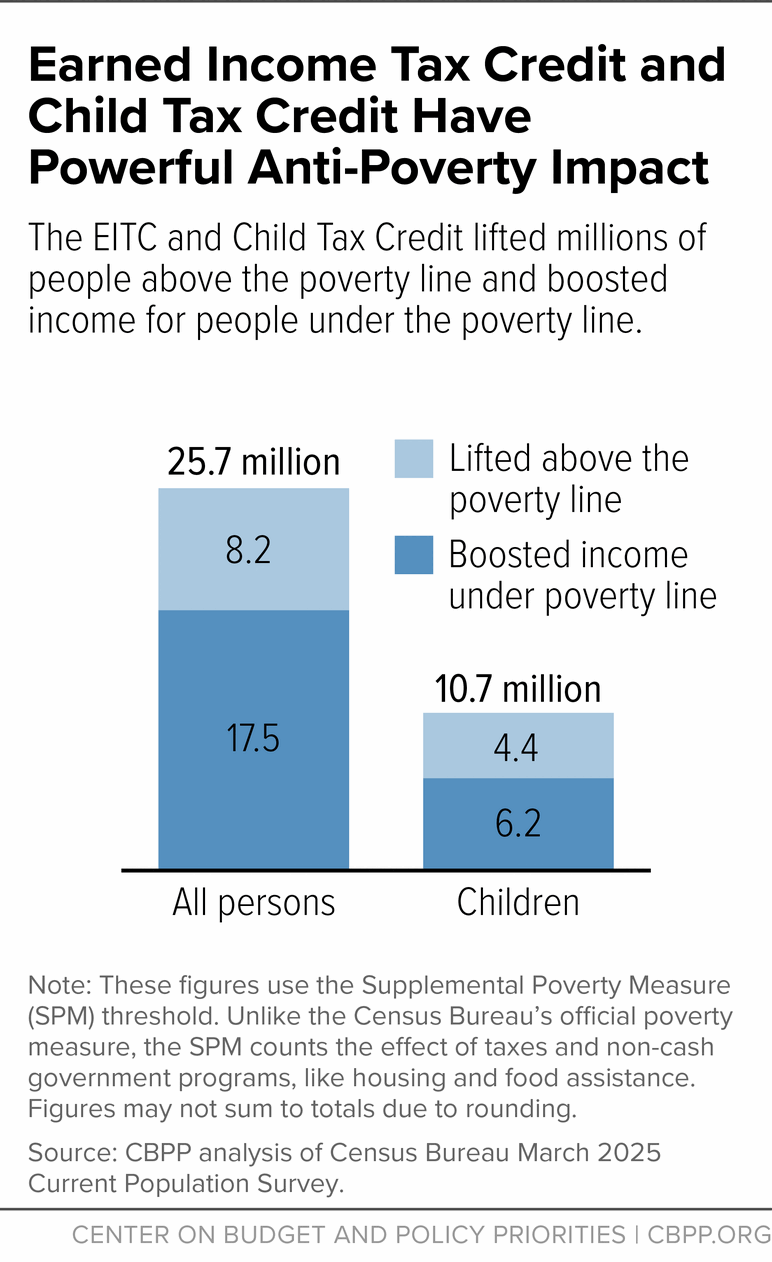 The EITC and other tax credit programs are authorized by various federal and state laws. The Tax Relief, Unemployment Insurance Reauthorization, and Job Creation Act of 2010 (Act) was passed by Congress and signed into law in December 2010. The primary focus of the Act is to extend provisions under the Economic Growth and Tax Relief Reconciliation Act of 2001 and the Jobs and Growth Tax Relief Reconciliation Act of 2003 (commonly referred together as the "Bush tax cuts"). The Act also extends a few key provisions of the American Recovery and Reinvestment Act of 2009, such as increases in the Child Tax Credit (CTC). Next, the American Taxpayer Relief Act of 2012 (ATRA), passed by Congress and signed into law in January 2013, extended a majority of tax cuts originally passed in 2001, 2003, and 2009. In December 2015, Congress passed a bipartisan tax deal that permanently extended key improvements in the EITC and CTC programs. This section includes resources on legislation and public policies relevant to the EITC and CTC, with a focus on policy analysis and useful information for the average reader. High level detail and technical information can be found at the U.S. Senate and U.S. House of Representatives websites.
The EITC and other tax credit programs are authorized by various federal and state laws. The Tax Relief, Unemployment Insurance Reauthorization, and Job Creation Act of 2010 (Act) was passed by Congress and signed into law in December 2010. The primary focus of the Act is to extend provisions under the Economic Growth and Tax Relief Reconciliation Act of 2001 and the Jobs and Growth Tax Relief Reconciliation Act of 2003 (commonly referred together as the "Bush tax cuts"). The Act also extends a few key provisions of the American Recovery and Reinvestment Act of 2009, such as increases in the Child Tax Credit (CTC). Next, the American Taxpayer Relief Act of 2012 (ATRA), passed by Congress and signed into law in January 2013, extended a majority of tax cuts originally passed in 2001, 2003, and 2009. In December 2015, Congress passed a bipartisan tax deal that permanently extended key improvements in the EITC and CTC programs. This section includes resources on legislation and public policies relevant to the EITC and CTC, with a focus on policy analysis and useful information for the average reader. High level detail and technical information can be found at the U.S. Senate and U.S. House of Representatives websites.









